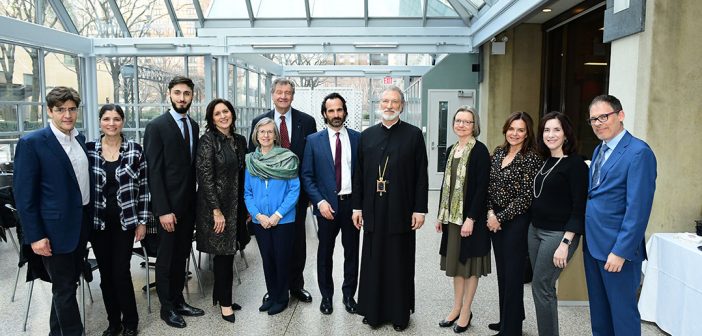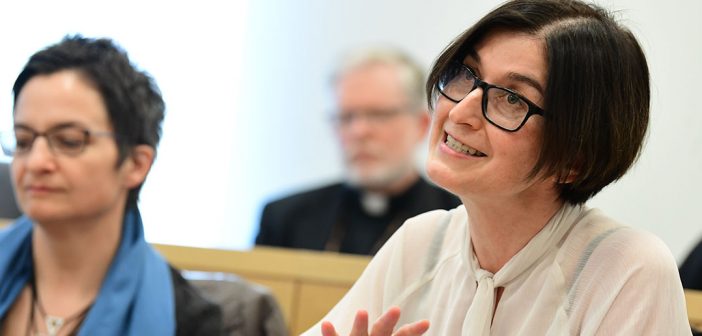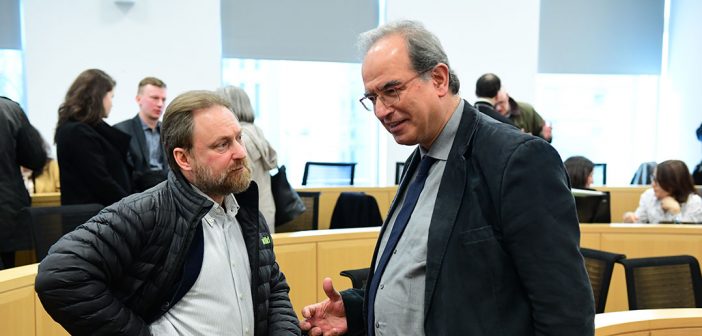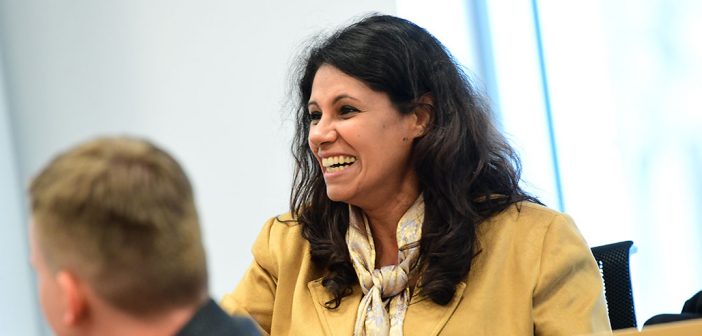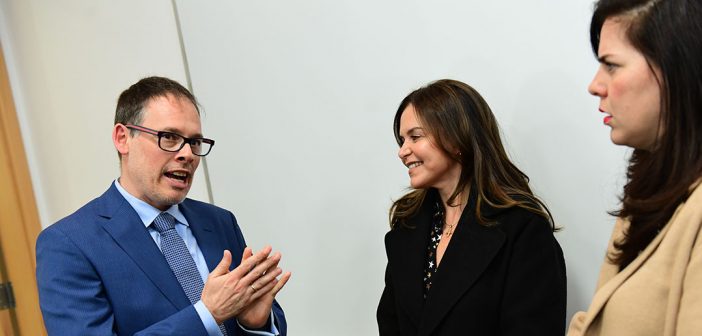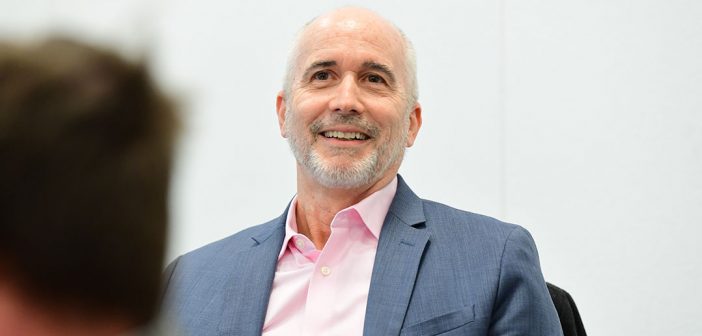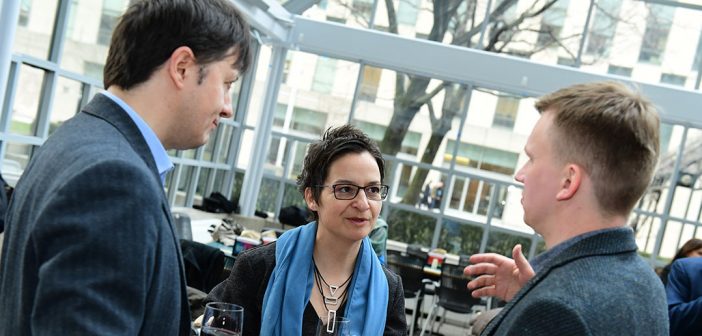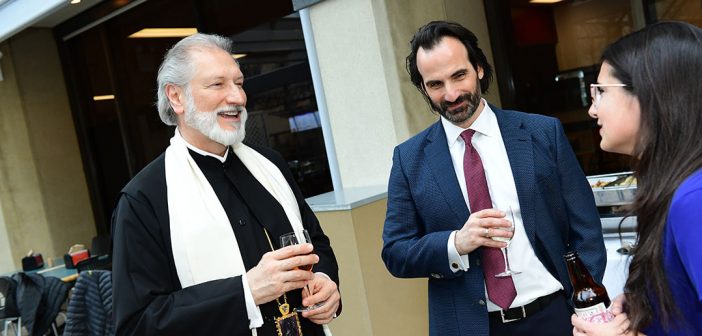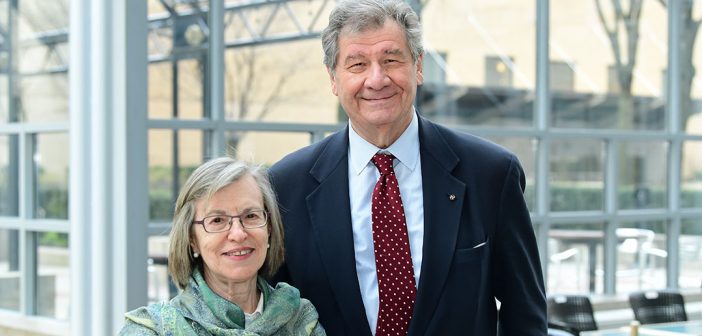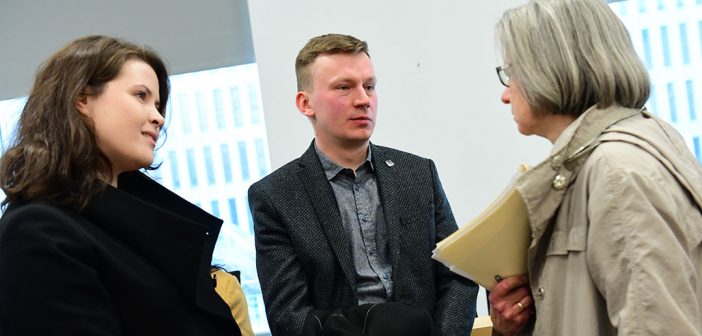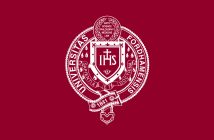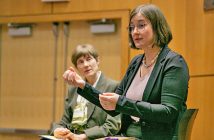The Orthodox Christian Studies Center welcomed 28 scholars and journalists to Fordham from March 20 to 22 for the first seminar in its five-year research initiative on Orthodox Christianity and human rights.
The meetings brought together an international group of experts in Orthodox Christianity from several disciplinary backgrounds and areas of specialization to discuss the major issues surrounding Orthodoxy’s complicated and often contentious relationship to human rights discourse.
According to center co-director George Demacopoulos, the goal of the project is to “flood the field” with publications analyzing multiple facets of Orthodoxy’s relationship to human rights: the history and theology of human rights in the Orthodox tradition, as well as current engagements with human rights among Orthodox communities in Eastern Europe and the Middle East. Over the next five years, the participating scholars will not only publish their research in academic books and journals but, in consultation with journalists, will disseminate their work through popular media to promote a more nuanced public understanding of Orthodoxy and human rights.
The three-day seminar, held at the Lincoln Center campus, featured sessions offering a broad overview of the current state of the field.
Kristina Stoeckl of the University of Innsbruck introduced participants to the Russian Orthodox Church’s recent statements on human rights, especially in debates in the United Nations over the family and “traditional values.” Stoeckl said that over the last decade, Russia has become the global leader in challenging Western understandings of universal human rights and has sought to transform human rights language to promote its “traditional values” agenda.
Michael Hanna of the Century Foundation led a discussion on Christians in the Arab world, where their status as religious minorities has led to a different relationship to human rights than in Orthodox-majority countries like Russia. For Middle Eastern Christians, negotiating questions of human rights is fundamentally an issue of survival, not one of values, he said.
The center also welcomed as a guest speaker Samuel Moyn, a leading historian of human rights at Yale University, who offered a historical overview of the origins of 20th-century human rights discourse through the work of Roman Catholic “personalist” philosophers like Jacques Maritain and their promotion of human dignity. Discussion turned to Maritain’s links to Russian Orthodox personalists who fled to Paris following the Bolshevik revolution, as well as to the role of Lebanese Orthodox thinker Charles Malik in drafting the 1948 Universal Declaration of human rights.
Major support for the project is provided by the Henry Luce Foundation with additional support provided by Leadership 100.
–Nathaniel Wood
